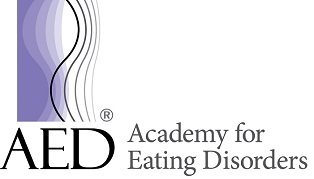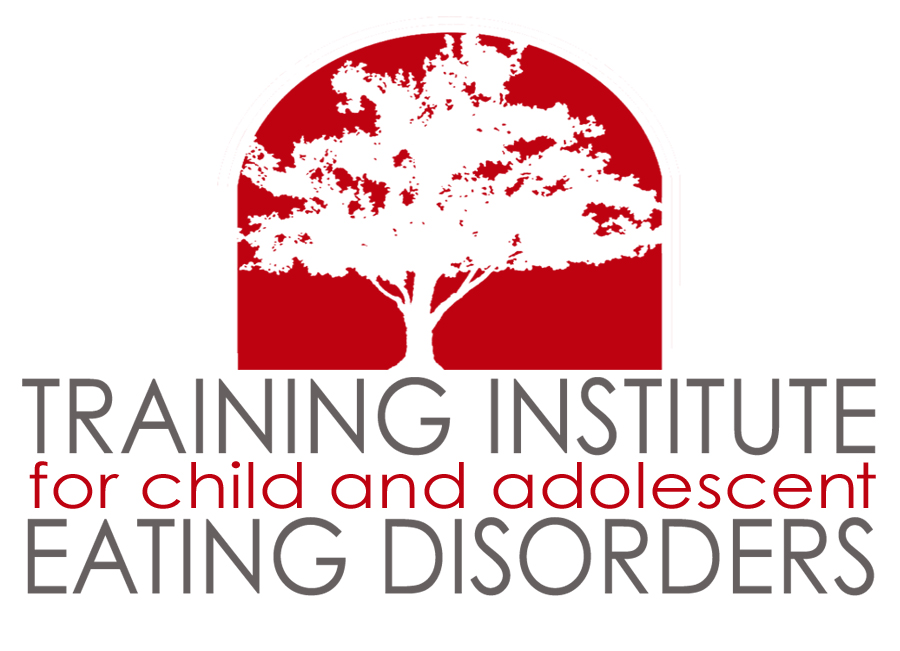What is Anorexia Nervosa?
Anorexia nervosa is a complex and severe eating disorder characterized by a distorted body image, intense fear of weight gain, and significantly low body weight due to self-imposed food restriction. Individuals with anorexia nervosa may also engage in excessive exercise, binge-eating followed by purging, or use of laxatives, diuretics, or diet pills to control their weight. This disorder can have severe physical and psychological consequences, affecting every aspect of a person’s life, including their health, relationships, and overall well-being.
What Causes Anorexia?
The exact causes of anorexia nervosa are not fully understood, as it is a complex disorder that likely results from a combination of genetic, biological, psychological, and sociocultural factors. Some of the potential contributors to the development of anorexia nervosa include:
Genetic factors: A family history of eating disorders may indicate a higher genetic predisposition.
Biological factors: Brain chemistry imbalances or hormonal changes could contribute to the disorder.
Psychological factors: Personality traits, high anxiety, or a history of trauma may increase susceptibility.
Sociocultural factors: Societal pressures and cultural norms emphasizing thinness can lead to negative body image and disordered eating behaviors.
These factors interact, and no single factor is solely responsible for causing anorexia nervosa. Early intervention and comprehensive treatment, such as the specialized services offered at Resilience Therapy, can help individuals with anorexia nervosa recover and build a healthier relationship with food, their bodies, and themselves.
How We Treat
At Resilience Therapy, we recognize the unique challenges faced by individuals struggling with anorexia nervosa and are committed to providing comprehensive, evidence-based support for children, teens, and adolescents. Our experienced and compassionate therapists utilize a range of specialized therapies tailored to meet the specific needs of each client, offering a personalized path to recovery.
Our diverse range of services includes Cognitive Behavioral Therapy Enhanced (CBT-E), Dialectical Behavior Therapy for Eating Disorders (DBT-ED), Exposure Therapy, and Health at Every Size® (HAES) oriented approach. These therapeutic modalities aim to address the underlying thoughts, emotions, and behaviors that contribute to anorexia nervosa, while also promoting healthy coping strategies, self-esteem, and body acceptance.
At Resilience Therapy, we believe in creating a safe, supportive, and inclusive environment that fosters hope, growth, and resilience. Our therapists work closely with clients and their families to develop a comprehensive treatment plan that addresses not only the symptoms of anorexia nervosa but also the underlying factors that contribute to its development and maintenance.
Anorexia Nervosa in Children
Anorexia presents in children, typically, by way of weight as most children suffering from this disorder are clinically under-weight. This form of self-starvation or food-restriction is often accompanied by deeply overwhelming fears about becoming obese or distorted self-image. Girls may begin to miss menstrual periods and children of any gender may use excessive exercise to facilitate weight loss. Anorexia nervosa is wide ranging in its damaging effects, with downstream symptoms occurring in every major organ group. Additionally, due to the mortality risk associated with this illness, early identification and treatment is crucial to mitigate some of the largest risks to children.


Anorexia Nervosa in Adolescents
Anorexia presents very similarly in adolescents as it does to children. Teenagers will struggle with self-image and weight concerns, under-eat to the point of clinical starvation. As a result, many of the symptoms and health concerns are similar to those of children as well. However, there are some specific challenges to the adolescent cohort with regards to anorexia. For one, the average age of this disorder across the board is 18 years of age, suggesting the majority of sufferers are adolescents. Additionally, eating disorders are statistically most fatal for teenagers from 15-21 making this population extremely important for doctors and therapists to focus their efforts on.
Anorexia Nervosa in Adults
Anorexia in adults looks largely similar to Anorexia in younger age groups. Due to its overwhelming statistical focus in early age populations, many of the resources and points of attention around this disorder are focused on early prevention up to late adulthood. But this does not mean that older adults do not suffer as well. For one, many older patients with anorexia are merely former young adults with anorexia who have been suffering for a long time, which also makes them less likely to seek professional help. Additionally, due to older age Anorexia nervosa can be more difficult to diagnose in a doctors office because the symptoms can be mistaken for other illnesses or even just be considered normal aging.

Health Risks Associated With Anorexia
Anorexia Nervosa is known to be a fatal disorder if left untreated

Anorexia Nervosa is known to be a fatal disorder if left untreated. While it can be fatal for some, others can experience a variety of health consequences from their disordered eating patterns. According to the American Psychiatric Association, the following medical conditions can be observed in someone struggling with anorexia:
- Anemia
- Hypercholesterolemia
- Metabolic alkalosis
- Sinus bradycardia
- Arrhythmias
- Low bone mineral density
- Osteopenia or osteoporosis
- Amenorrhea
- Emaciation
An additional risk that is worthy of discussion is that of suicide. Suicide rates among individuals who struggle with anorexia nervosa are approximately 12 per 100,000 each year (American Psychiatric Association, 2013). Because of this, individuals are continuously assessed for mental health concerns such as depression and suicidal ideation while in treatment for their eating disorder. Being open and honest with your medical providers can provide you with the best possible care.
Our Treatment Methods
effective recovery is one step away
The Resilience DBT & Eating Recovery Program offers expert assessment and evidenced-based treatment for the full range of eating disorders and body image problems. We are experienced and certified to treat pediatric, adolescent, and adult eating disorders with boys and girls, and with men and women. We are trained to recognize the biological and brain-based underpinnings of eating disorders and utilize the Evidenced-Based treatments – Family-Based Therapy (FBT) or Maudsley Approach, CBT-E, and DBT for Eating Disorders. Parents are always included as an essential and an integral part of a child or teen’s recovery from an eating disorder.
FAMILY BASED TREATMENT (FBT)
Family-Based Treatment (FBT) stands as the gold standard for addressing eating disorders in children and adolescents, particularly for early-onset cases of anorexia, bulimia, and ARFID (Avoidant Restrictive Food Intake Disorder). FBT is now recognized as the first line of treatment.
This approach places parents at the forefront of their child’s re-nourishment and weight restoration process, guided by a certified FBT practitioner and in collaboration with an outpatient pediatrician or adolescent medicine specialist. The child or adolescent, alongside their parents, undergo a thorough screening to ensure their suitability for this protocol, which is conducted in the least restrictive environment – the comfort of your home!


Cognitive Behavioral Therapy (CBT-E)
At Resilience Therapy, we specialize in Cognitive Behavioral Therapy Enhanced (CBT-E) to support children, teens, and adolescents struggling with eating disorders. Our compassionate and highly skilled therapists are dedicated to helping your loved ones develop resilience and overcome challenges associated with various eating disorders, such as anorexia nervosa, bulimia nervosa, binge-eating disorder, and other specified feeding or eating disorders (OSFED).
We understand that each individual’s experience is unique, and that’s why our approach to CBT-E is tailored to meet the specific needs of our clients across all age groups. Our therapy sessions are time-limited, structured, and goal-oriented, typically involving individual sessions with a therapist.
Dialectical Behavior Therapy for Eating Disorders (DBT-ED)
Dialectical Behavior Therapy for Eating Disorders is an eating disorder treatment we use for adults who struggle with co-occuring mental health issues and an eating disorder.
DBT-ED is the treatment of choice for individuals that struggle with co-occurring mental health issues in addition to the eating disorder; such as depression, anxiety, suicidal ideation or PTSD. This comprehensive treatment method addresses the complexity of these mental health issues, in concert, prioritizing the most dangerous symptoms first. DBT Skills Training is excellent method for follow-up Aftercare and Relapse Prevention after a residential or intensive Eating Disorder treatment program.


Expressive Arts Therapies
Expressive Arts therapies are powerful and effective modalities in the treatment of eating disorders. Unexpressed emotions and thoughts out of awareness, interfere with true recovery. Art Therapy, Dance/Movement Therapy, music, and psychodramatic role-play make emotions, bodily-felt sensations, and cognition more accessible. Once emotions and thoughts are accessible, one can better utilize the problem solving methods in CBT and DBT.
How We Treat
Explore the benefits of an evidence-based approach to therapy
Family Based Treatment (FBT)
FBT, or the Maudsley approach, is a Gold Standard treatment. FBT is a culturally-sensitive method that keeps a child in their family environment.
Cognitive Behavioral Therapy (CBT-E)
We specialize in Cognitive Behavioral Therapy Enhanced (CBT-E) to support children, teens, and adolescents struggling with eating disorders
Comprehensive Dialectical Behavior Therapy (DBT)
Our compassionate and highly skilled therapists are dedicated to helping your loved ones develop emotional resilience, improve their self-esteem, and overcome challenges associated with various eating disorders.
How do I begin?
Our team is dually and expertly trained in the Treatment of Eating Disorders and DBT for Mental Health. Our Evidenced-Based approaches include FBT, CBT-E, DBT-ED, and Comprehensive DBT for co-occurring mental health conditions. Our outpatient practice has helped Children, Teens and Adults achieve full Eating Disorder Recovery and Mental Health Stability for over 25 years.
1
Schedule your 15 minute free phone consultation
This phone screening is highly confidential to help determine if coming to the Resilience practice is the best course for you or your loved one.
2
Complete an Expert and Comprehensive Intake
During your intake appointment we will gather more information to identify your stressors and needs. And work with you to develop your resilience treatment plan.
3
Get connected with Your Personalized Care Team
Meet with a practitioner to get started on your journey of healing and wellness you know you deserve.










